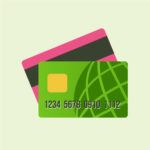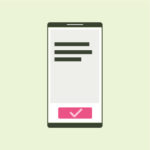What Is the Best Way to Pay Unbanked Employees?
What employees do with their money once you hand it over to them may seem beyond your organization’s purview. Unbanked employees, however, face unique challenges that can add stress and affect their work performance.
While there is no silver bullet or perfect payroll for the unbanked, understanding your unbanked employees’ challenges will better prepare you for conversations and questions about payroll issues. As you work with your unbanked employees, knowing the different options available may help you find a payment solution that minimizes their financial risk and fees.
We’ll cover what it means for employees to be unbanked or underbanked and why it matters before reviewing the merits of several ways to pay unbanked employees.
What Is the Difference Between Unbanked and Underbanked?
The Federal Deposit Insurance Corporation (FDIC) defines unbanked as a household where no one has a checking or savings account at a bank or credit union. As of 2019, 5.4 percent of U.S. households were unbanked. Underbanked, on the other hand, refers to a household that “[has] an account at an insured institution but also [obtains] financial products or services outside of the banking system.”
In our discussion, we’ll be focusing on unbanked employees specifically, but some of what we cover may also apply to your underbanked employees. While underbanked individuals may have a basic bank account, they face similar problems as those who are unbanked because they also rely on alternative financial services like money orders, payday loans, check cashing, etc. Additionally, underbanked employees may very well become unbanked. About half of unbanked households previously had a bank account.
Why Do People Choose to Go Unbanked?
Strained finances seems to be one of the main reasons people are unbanked. The top five reasons given by unbanked respondents in the 2019 FDIC survey were:
- 49% don’t have enough money to meet minimum balance requirements
- 36% don’t trust banks
- 36% avoid banks to have more privacy
- 34% think bank account fees are too high
- 31% think bank account fees are too unpredictable
How Does Being Unbanked Affect Employees and Payroll?
Alternative Financial Services Are a Financial Burden
Going off the grid, as it were, isn’t cheap, but people without bank accounts don’t have a lot of options. Without a bank account, they can’t deposit a physical paycheck or set up a direct deposit. If they have a problematic banking history or low credit score, they can’t easily access their money with a debit card or borrow against it with a credit card, and they don’t have the same fraud or consumer protections that come with these traditional financial services.
Wherever they turn for alternative financial services, unbanked employees face steep fees. If they get a paycheck, they have to get it cashed by a third party. Walmart, for example, charges four dollars for checks under 1000 dollars. Unbanked employees face additional hurdles if they want to transfer their money, which they have to do with a money order. These cost anywhere from one to ten dollars per money order.
Prepaid cards are another alternative payday option (more on these below) because they work like debit cards and have some fraud protection. However, prepaid cards carry a myriad of fees for checking the card’s balance, withdrawals, etc. Over time, all these fees eat away at unbanked employees’ wages.
In addition to fees, translating paychecks into accessible funds without the security provided by a bank involves unseen costs in time and a greater risk of losing their pay. They have to go in person to get a check cashed, and that means waiting in line and maybe leaving work to do so. And they could also misplace that cash, or someone could steal it, and these situations would leave them with no way to recover their paycheck.
Financial Stress Negatively Impacts Employee Performance
Most employers recognize that their employees’ financial worries don’t stop when they clock in. In fact, four out of five employers say that personal financial issues are somewhat to extremely impactful on employee performance.
As evidenced by the fact that many who are unbanked can’t afford banking fees, your unbanked employees are much more likely to have that additional financial stress hanging over them. Unbanked rates are also higher among lower-income households. Put it all together, and you’ve got a recipe for financial precariousness.
It’s in your organization’s interest to lower your employees’ financial stress since it will also help them be happier and more productive while at work. You can reduce the number of hoops unbanked employees have to jump through to access their money, saving them time and making it less likely they’ll miss work.
What Are Your Options for Paying Employees Who Do Not Have a Bank Account?
There’s not much you can do to solve the general lack of trust or the high fees that may be causing some of your employees to be unbanked. While you can’t fix all their financial problems, you can offer your unbanked employees better options for accessing their pay. We’ll go over some of the options available, so you can make the best decision for your unbanked employees.
 Manual Paychecks
Manual Paychecks
Pros:
- Employers have a paper trail (unlike when you pay them with cash).
- Employees get a pay stub.
- Employees don’t need a bank account or direct deposit.
Cons:
- Employees need to pay fees to cash the checks.
- Employers need to get them printed or mailed, which requires special equipment if done in-house and takes time.
 Prepaid Cards or Paycards
Prepaid Cards or Paycards
Pros:
- Employers can deposit wages directly into their employees’ cards.
- Employees can use the cards like a debit card, in stores, online, at ATMs, etc.
- Employees have immediate access to the funds.
- Paycards are cheaper to administer than paychecks and come with fraud protection.
Cons:
- Depending on the provider, paycards can charge a lot of so-called “junk” or hidden fees, e.g., for participating in the program, checking card balance, withdrawing money, having low balance, overdrafting, etc.
Employers can’t require their employees to accept paycards; employers must offer an alternative method of payment.
 Online Money Apps
Online Money Apps
Pros:
- Employees have many options to choose from—e.g., PayPal, Venmo, Cash App—most of which are free to use.
- Employees have direct access to their pay without needing to have a bank account.
- Employees can generally just give employers their account information, as they would for their bank account, to set up a direct deposit.
- Some apps offer payroll integrations.
Cons:
- Employees need an internet connection and a smartphone.
- Employees can’t use these apps to pay for everyday purchases because many businesses don’t accept them.
- Employees’ ability to set up direct deposit through an online app usually depends on the type of account, which may mean they have to pay a fee.
Some of these apps, like Venmo, warn against using them for business purposes since they essentially work like cash transactions and leave no paper trail.
 What About Cash?
What About Cash?
While it may be tempting to pay with cash because it seemingly cuts out the middleman, it’s a payroll no-no for several reasons. Paying with cash is a very risky transaction for both employers and employees because neither of you get a paper trail. In other words, it’s much harder to stay compliant, it makes the IRS very suspicious, and, when things go wrong, it makes it very hard to prove any kind of fraud. And as we discussed earlier, cash just isn’t a convenient or secure payment method for employees.
Unbanked Employees Have It Tough, And Things Might Just Get Tougher
An already difficult and stressful financial situation is likely getting worse and more stressful for some of your employees. In their 2019 report, the FDIC warns that the effects of the COVID-19 pandemic will likely increase the number of unbanked people because of the economic downturn. They base their prediction on previous recessions: “During the Great Recession and its immediate aftermath, the unbanked rate rose from 7.6 percent in 2009 to 8.2 percent in 2011.”
The pandemic and social distancing also make it harder for people to conduct in-person financial transactions, like cashing checks, using cash, and other types of services that unbanked employees tend to rely on.
How you choose to do payroll for unbanked employees can help them relieve some of this stress, but good business practices overall to keep your employees safe during the pandemic continue to be important moving forward. As an HR team, you can also help all your employees make better financial decisions by offering financial education training as a benefit.
Get caught up every month on all things HR. Don't worry, we promise we won't spam you.
Marie-Reine Pugh is focused on making HR simpler for HR professionals and workplaces a better place for everyone. She pulls from her previous experiences as an educator and six years of writing and researching to explore how to create inclusive company cultures that help businesses succeed.









